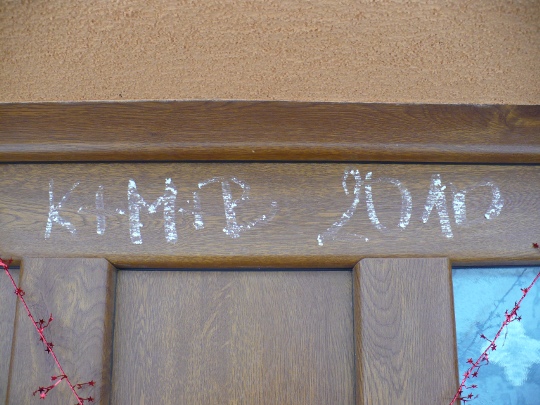Western Christians observe a twelve-day festival, starting on December 25, and ending on January 5, known as Christmastide or the Twelve Days of Christmas. Christmas ends with the celebration of Epiphany (January 6), the end of the Twelve Days.
On the Feast of the Epiphany, the priest, wearing white vestments, will bless the Epiphany water, frankincense, gold, and chalk. Chalk is used to write the initials of the three magi over the doors of churches and homes. The letters stand for the initials of the Magi (traditionally named Caspar, Melchior, and Balthasar), and also the phrase Christus mansionem benedicat, which translates as “may Christ bless the house”.
According to ancient custom, the priest announced the date of Easter on the feast of Epiphany. This tradition dated from a time when calendars were not readily available, and the church needed to publicize the date of Easter, since many celebrations of the liturgical year depend on it. The proclamation may be sung or proclaimed at the ambo by a deacon, cantor, or reader either after the reading of the Gospel or after the post-communion prayer. (In New York City, the only church I know to do this according to the proper chant is the Church of St. Mary the Virgin in Times Square.)
The Roman Missal thus provides a formula with appropriate chant (in the tone of the Exsultet) for proclaiming on Epiphany, wherever it is customary to do so, the dates in the calendar for the celebration of Ash Wednesday, Easter, and other holy days that will mark the following liturgical year.

